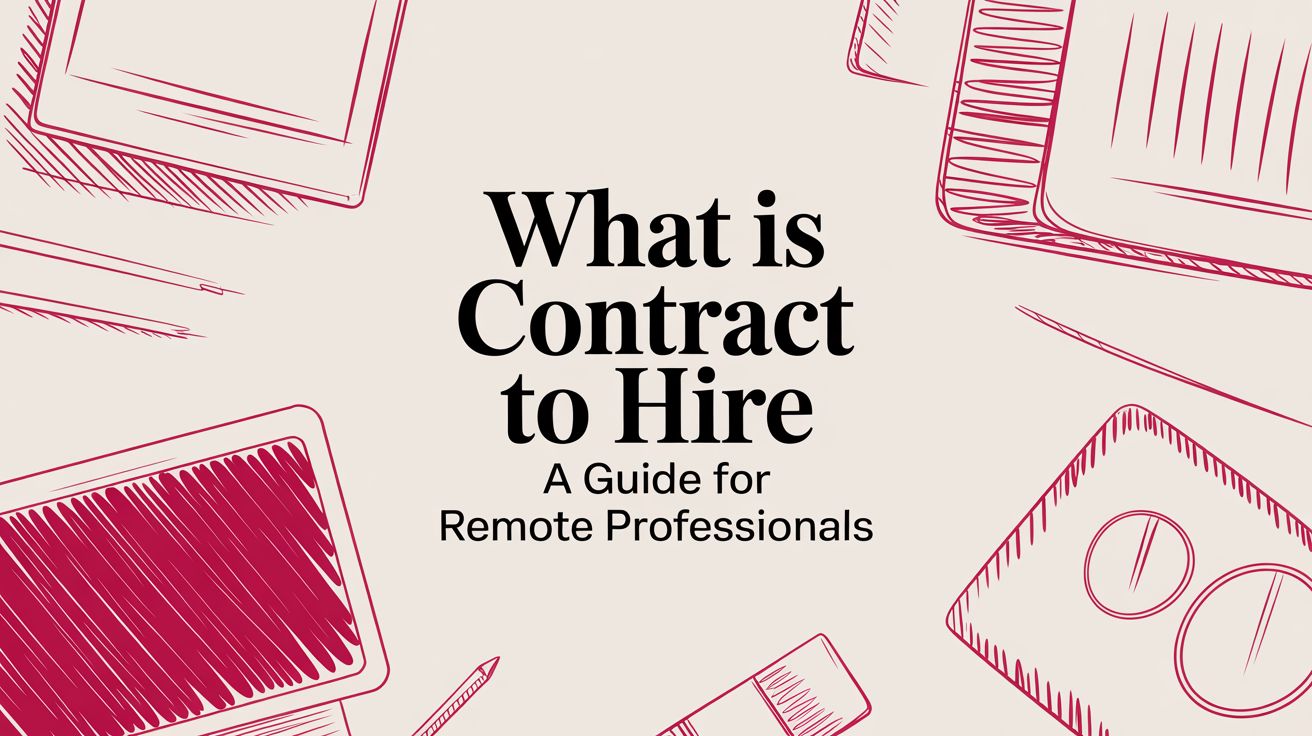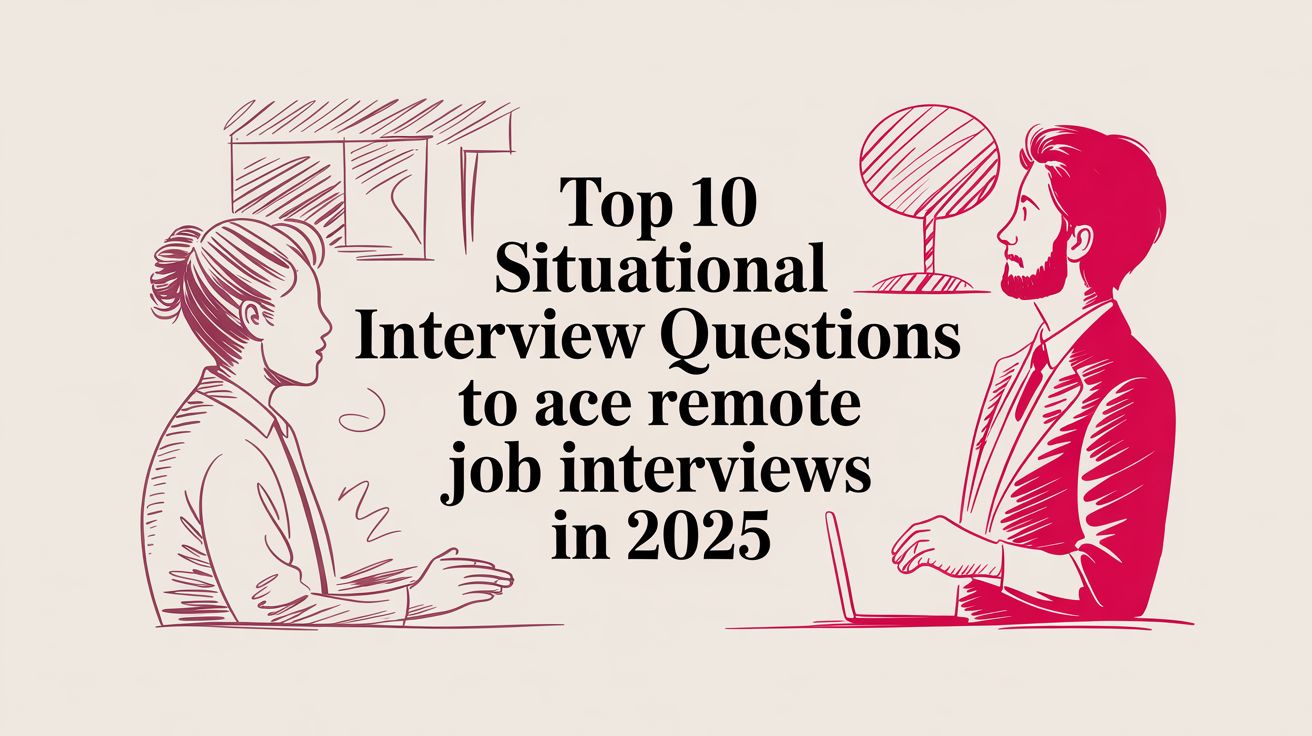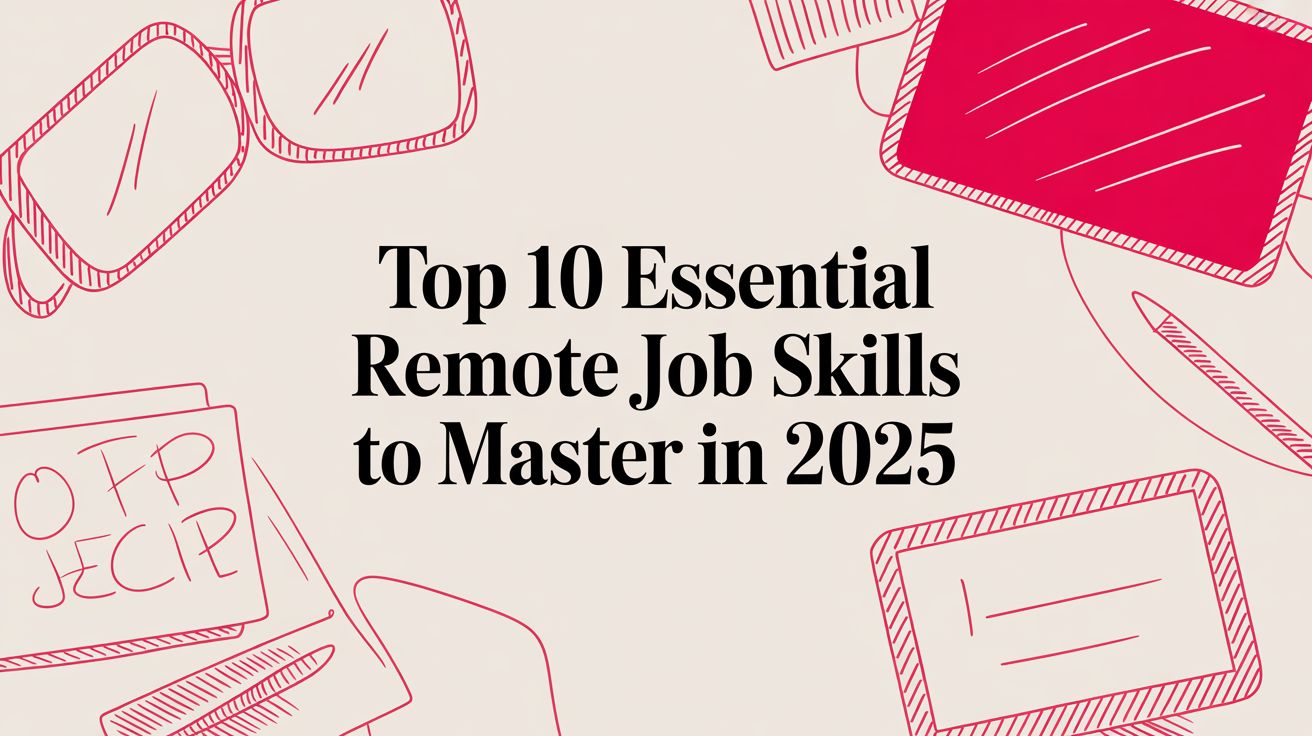To get the salary you deserve, you need to approach the conversation like a business discussion, not a fight. It all boils down to knowing your market value, being able to clearly explain why you’re worth it, and making a counteroffer that’s grounded in reality. And always remember, that first number they throw out is almost never their final offer.
Why You Should Always Negotiate Your Salary

Let’s be real for a second—talking money can feel awkward, even a little scary. But here’s the inside scoop: most companies fully expect you to negotiate. That initial offer isn’t set in stone; it’s the opening line of a conversation.
This isn’t about being greedy or difficult. It’s about collaboratively figuring out fair compensation for the unique skills and experience you’re bringing to their team.
The Financial Impact of Not Negotiating
Skipping this one conversation can cost you dearly over the long haul. A small bump today doesn’t just feel good now; it compounds year after year through future raises, bonuses, and even your retirement savings.
Think about it: that initial $5,000 increase could easily turn into hundreds of thousands of dollars over the course of your career. It’s a foundational move for building wealth, especially when you’re going after those remote jobs with high pay where the salary bands can be incredibly wide.
If you take away one thing, let it be this: Negotiation is a normal, respected part of hiring. Companies literally build this wiggle room into their budgets. If you don’t negotiate, you’re just leaving money on the table they were already willing to pay.
Negotiation Is the New Normal
The hiring world has changed. It’s not the old-school, “take-it-or-leave-it” environment anymore. A recent study found that 67% of professionals who asked for more money got it, which tells you this has become standard practice.
This shift is partly thanks to younger generations coming into the workforce armed with data and a clear understanding of their market value. It’s also changing on the employer side. A whopping 53% of employers say they’re open to negotiating, even for entry-level roles. They might sweeten the initial salary or offer a faster path to a raise.
This data proves companies are way more flexible than you probably think. When you come prepared with your research, you don’t look demanding—you look like a savvy professional who knows their worth.
Laying the Groundwork for a Strong Negotiation

Here’s a secret: the best negotiations are won before you ever talk numbers with a hiring manager. Your real power doesn’t come from being a smooth talker; it comes from solid preparation.
This is the phase where you build an undeniable, data-backed case for your value. Think of it less as an “ask” and more as a logical business proposal they can’t ignore.
Determine Your Market Value
Forget guesswork. Your first mission is to become an expert on what the market is actually paying for someone with your specific skills, in your industry, right now.
Generic salary calculators are fine for a ballpark figure, but to build a compelling argument, you need to go deeper.
Here are the best places to start digging:
- Industry-Specific Platforms: For tech roles, sites like Levels.fyi are goldmines. They offer crowdsourced data that breaks down base salary, stock options, and bonuses from top companies. Find the equivalent for your field.
- Transparent Salary Data: Websites like Glassdoor and Payscale rely on user-submitted salary ranges for specific roles and companies. Focus on data from the last 12 months to ensure it’s current.
- Professional Networks: Never underestimate the power of a quiet conversation. Reach out to trusted peers or mentors in your industry to get a feel for current compensation trends. Most people are happy to share general ranges.
As you collect this intel, you’re not hunting for a single magic number. The goal is to establish a realistic salary range. This range is the bedrock of your entire negotiation strategy.
Look Beyond the Base Salary
An offer is so much more than just the base pay. Total compensation is the full package—every single thing of value the company provides. In many roles, especially in tech, benefits and equity can add tens of thousands of dollars to your annual earnings.
Don’t forget to factor in these elements:
- Performance Bonuses: Are they guaranteed or discretionary? What was the average payout for someone in this role last year?
- Equity: Are they offering stock options or RSUs? You need to understand the vesting schedule and the company’s current valuation to know what it’s truly worth.
- Benefits: Calculate the real-dollar value of health insurance premiums, 401(k) matching, professional development stipends, and paid time off.
Understanding the full picture gives you flexibility. If a company is firm on their base salary, you can pivot to negotiating a higher signing bonus or an extra week of vacation.
It also pays to know the bigger economic picture. Globally, salary increases for 2025 are projected to average around 4.5%. But that number changes drastically depending on where you are. India is expecting a 9.3% jump, while the U.S. is looking at a more modest 3.7% rise. This kind of data, which you can explore on sites like Vencon Research, keeps your expectations grounded in reality.
Build Your Personal Value Proposition
Okay, so you know what the market pays. Now you have to prove why you deserve to be at the top end of that range. This is where you connect the data to your own story.
Pull up the job description and your resume side-by-side. I’m a huge fan of creating a “brag sheet” that quantifies your biggest wins.
Pro Tip: Don’t just list what you did. Frame your accomplishments with hard numbers. Instead of “Managed social media,” try “Grew social media engagement by 45% in six months, driving a 15% increase in web traffic from social channels.”
Now, map each of those achievements directly to a key requirement in the job description. This transforms your resume from a history lesson into a preview of the awesome results you’re going to deliver for them.
This brag sheet is your secret weapon—the proof that justifies every dollar you ask for. For more on this, check out our guide on crafting a resume for remote jobs that screams impact.
Mastering the Negotiation Conversation

This is it—the moment all your prep work leads up to. The actual salary talk isn’t a fight; it’s a calm, professional business discussion. You’re simply laying out your value proposition.
Whether it’s a phone call, a Zoom meeting, or an email exchange, the core principles are the same: clear, confident communication.
Think of it as a collaboration, not a confrontation. You’re working with them to land on a compensation package that makes sense for the market, for the role, and for the skills you’re bringing. Framing it this way makes all the difference.
The Art of Timing and Phrasing
Knowing when to talk salary is half the battle. The golden rule? Wait until you have a formal written offer. Bringing up numbers too early puts you on the back foot because the company hasn’t fully committed yet. Once that offer is in your hands, you have all the leverage.
When you get the offer, don’t immediately counter. Your first move should be to thank them and express how excited you are about the role. Then, just ask for a day or two to review everything. This is standard practice and shows you’re thoughtful, not wishy-washy.
Once you’re ready to talk, the words you choose matter. A lot.
- Avoid Demands: Instead of a blunt, “I need $90,000,” try a softer approach. “Thank you so much for the offer. I’m very excited about this opportunity. Based on my research for similar roles and considering my experience in X and Y, I was targeting a base salary closer to the $90,000 to $95,000 range. Is there any flexibility to get closer to that figure?”
- Stay Positive: Frame your counter as a question. Keep the focus on finding a number that works for everyone.
Handling the “Salary Expectations” Question
Hiring managers love to ask about your salary expectations early on. It’s a tricky question designed to see if you’ll lowball yourself. Go too high, and you might get screened out. Go too low, and you’ve anchored yourself to a smaller paycheck.
Your best bet is to politely sidestep the question.
“I’m currently focused on determining if this role is the right fit for both of us. Once we’ve confirmed that, I’m confident we can find a compensation package that is fair and competitive based on the market and the responsibilities of the position.”
If they really push for a number, give them the well-researched range you came up with. This shows you’ve done your homework without locking you into a single figure.
When They Name the First Number
Congratulations, the offer is here! Remember, the first number they throw out is almost always just a starting point. Your reaction is key. Don’t let disappointment or frustration show on your face. Stay cool and appreciative.
No matter what the number is, your response should be some version of this: “Thank you for sharing that. I appreciate you putting together this offer. Could you give me a day or two to review it in detail with my family?” This simple line gives you breathing room to plan your counteroffer without an emotional, on-the-spot reaction.
Look Beyond the Base Salary
Sometimes, a company is truly at the top of its budget for base pay. If they can’t budge on salary, the negotiation isn’t over. It’s just time to get creative and look at the total compensation package.
Think about other valuable perks you can negotiate for:
- Signing Bonus: A one-time payment is a great way to bridge the gap if the base salary is just shy of your target.
- Extra Vacation Days: More paid time off is an incredible benefit that often costs the employer very little to approve.
- Professional Development Budget: Ask for a stipend for courses, certifications, or conferences. It’s a win-win—you grow your skills, and they get a more valuable employee.
- Remote Work Flexibility: If the job is hybrid, could you negotiate for more work-from-home days each week?
- Early Performance Review: Propose a six-month review instead of the typical annual one, with a salary adjustment tied to hitting specific performance goals.
These talks can feel intimidating, but they are absolutely critical for your career growth. For more advice on navigating these key moments, check out our guide on how to handle difficult conversations at work.
Putting It All In Writing: Your Counteroffer Email and Scripts

This is where the rubber meets the road. Knowing what to say—and just as importantly, how to say it—can feel like the trickiest part of the whole negotiation. But the right words build your confidence and keep the conversation collaborative, not confrontational.
Your goal isn’t to issue demands. It’s to open a dialogue with language that’s firm, respectful, and focused on finding a solution that works for everyone.
Whether you’re typing up an email or prepping for a call, having a few scripts in your back pocket is a game-changer. It takes the pressure off so you can communicate your value without stumbling over your words.
The Anatomy of a Strong Counteroffer Email
Think of your counteroffer email as the opening move. It needs to set a positive, professional tone and should be concise and backed by the research you’ve already put in. A well-crafted email creates a clear, documented starting point for the discussion.
Here are the key ingredients:
- Lead with Enthusiasm: Always start by saying how excited you are about the role. This immediately shows them your interest is genuine and it’s not just about the money.
- State Your Counter and Why: Clearly present your desired salary. Then, briefly tie that number back to your research, specific skills, or the unique value you know you’ll bring.
- Keep it Collaborative: Your phrasing is everything. Frame your counter as a question, not a demand. Try something like, “Is there any flexibility to…” or “I would be more comfortable if we could find a number closer to…”
- Propose the Next Step: Don’t just leave it hanging. End by suggesting a quick call to chat about it. This moves the conversation from text to voice, which is always more personal and effective.
If you want to sharpen your communication skills even further, our guide on how to write effective emails has some great pointers.
A Quick Example: “Thank you again for the offer to join the team as the new Senior Marketing Manager. I am incredibly excited about the opportunity to contribute to the upcoming product launch. After reviewing the offer and comparing it with market data for similar roles in the SaaS industry, I was hoping there might be some flexibility on the base salary.”
Scripts for Live Phone or Video Negotiations
Things often move to a call to hash out the final details. This is where you might get a bit nervous, but having some talking points ready will keep you cool and collected, especially if you get some pushback.
Responding to “This is our final offer.”
Don’t panic. This might be true, or it might just be a negotiation tactic.
What to Say: “I understand that the base salary may be firm. Given that, could we explore other areas of the compensation package? I’m particularly interested in discussing the possibility of a signing bonus or an additional week of vacation.”
Handling “That’s above our budget.”
This is probably the most common response you’ll hear. Your job is to gently steer the conversation back to your value, not their budget.
What to Say: “I appreciate you sharing that. My research indicated my target range was competitive for the value and experience I bring, particularly my background in [mention a key skill]. Would it be helpful if I walked you through how I see my skills directly impacting the team’s goals?”
This pivot is brilliant. It reframes the discussion around the results you’ll deliver, reminding them that investing in you is a smart move for the business.
Negotiation Phrasing Dos and Don’ts
The words you choose matter immensely. Weak or demanding language can shut down a conversation, while collaborative and confident phrasing keeps it moving forward. Here’s a quick cheat sheet to help you frame your points effectively.
| Scenario | What to Avoid Saying | What to Say Instead |
|---|---|---|
| Opening the Discussion | “The salary is too low.” | “Thank you for the offer! I’m very excited about the role. Based on my research, I was hoping we could discuss the base salary.” |
| Justifying Your Ask | “I need $XX,XXX to accept.” | “My research on similar roles, combined with my experience in [specific skill], suggests a salary in the range of $XX,XXX.” |
| Receiving Pushback | “Is that the best you can do?” | “I understand your constraints. Could we perhaps explore flexibility in other areas, like the performance bonus or professional development budget?” |
| Closing the Conversation | “I guess I’ll have to think about it.” | “I appreciate the conversation. Could I have until [Date] to review the updated offer and get back to you?” |
Using stronger, more positive language shows you’re a strategic thinker and a problem-solver—exactly the kind of person they want on their team. It turns a potentially awkward conversation into a constructive one.
Navigating Tricky Scenarios and Roadblocks
Not every salary conversation goes smoothly. You’re bound to get a curveball now and then, like a surprisingly low offer or a company claiming their budget is set in stone. Knowing how to handle these roadblocks is what separates a stalled conversation from a successful outcome.
When a company insists their salary is non-negotiable, it’s often just a tactic to see how you’ll react. Don’t just pack it in and accept. Instead, you need to pivot. Acknowledge their position on the base salary, but then immediately shift the focus to other valuable parts of the compensation package.
Pro Tip: If they won’t budge on the base salary, immediately ask about a signing bonus, more paid time off, a budget for professional development, or even an earlier performance review. You can frame it as finding a creative way to make the total package work for everyone.
Handling a Lowball Offer
Getting an offer that’s way below what your research told you to expect can feel like a punch to the gut. But don’t let it throw you off your game. The most important thing is to stay calm and professional.
Never show your frustration. Instead, bring the conversation back to the value you offer and the market data you’ve gathered.
Try responding with something like, “Thank you so much for the offer. I was a bit surprised by the number, as my research for this type of role showed a range closer to X. Could you walk me through how you arrived at this figure?” This polite, simple question opens the door for them to explain their reasoning and, more importantly, gives them a chance to adjust it.
Leveraging Competing Offers
Holding another offer puts you in a powerful position, but you have to play this card with finesse to avoid sounding arrogant or pushy. Think of the other offer not as a threat, but as another piece of data that confirms your market value.
When you bring it up with the hiring manager, keep it professional. You could say, “As I’ve been going through this process, I did receive another offer. However, your company is my top choice because of [mention a specific, genuine reason]. I’d really love to find a way to make this work. Is there any flexibility on your initial offer?”
This approach shows your genuine interest in their company while giving them a very concrete reason to come back with a better number. You can find more strategies for these critical conversations in our guide on preparing for a performance review, since many of the principles of demonstrating your value overlap.
Generational Shifts in Negotiation
It’s also good to know that negotiating is becoming much more common, especially with younger generations entering the workforce. Recent data shows that a whopping 55% of Gen Z workers negotiate their starting salaries—a rate much higher than any generation before them.
And that confidence pays off. Nearly 79% of Gen Z who ask for more actually get an improved offer. You can dig into more of these salary expectation trends on ResumeGenius.com.
This trend is great news for you, because it means employers are more prepared for—and more responsive to—a well-reasoned and professional counteroffer.
Answering Those Tricky Negotiation Questions
Even with a solid game plan, you’re bound to run into some tough questions or awkward moments during a salary talk. The key is not to get flustered. Having a few answers in your back pocket for these common scenarios will keep you feeling confident and in control.
“What’s Your Current or Previous Salary?”
This question is a classic trap. You should always politely sidestep it and pivot the conversation back to the value you’ll bring to this company, not what you earned at your last one.
Try saying something like this: “My focus is really on the value I can bring to this role and your team. Based on the responsibilities we’ve discussed and my research on similar positions, I’m targeting a compensation package in the [Your Researched Range] range.” This reframes the entire discussion around your future contributions. Besides, in many states and cities, it’s actually illegal for them to even ask.
How Long Should I Wait to Counter an Offer?
Timing is everything here. You don’t want to seem desperate, but you also don’t want to drag your feet. A good rule of thumb is to acknowledge the offer and express your excitement within 24 hours.
In that first email or call, it’s perfectly normal to ask for a bit of time to review the details. Simply say you’d like a day or two to look everything over. This shows you’re thoughtful and serious. Plan to send your detailed, well-reasoned counteroffer within 2-3 business days. This respects their timeline while giving you enough breathing room to build a compelling case.
What if They Just Say No to My Counteroffer?
First, don’t panic. If the company tells you the base salary is non-negotiable, the conversation isn’t necessarily over. This is your cue to explore other parts of the compensation package.
The goal is to find a solution where everyone feels good about the outcome. If base pay is a dead end, shift your focus. You can ask about a signing bonus, an extra week of vacation, a budget for professional development, or even an earlier performance review schedule for a potential raise down the line.
If they won’t budge on anything at all, then it’s time for a gut check. You have to step back and decide if the original offer, as it stands, still aligns with your career goals and financial needs.
Should I Negotiate Over Email or Phone?
Honestly, both have their pros. Email is great because it gives you time to choose your words carefully and creates a paper trail of your conversation. On the other hand, a phone call can feel more personal and allows for a real-time, collaborative back-and-forth.
Why not use both? A winning strategy is to combine them. You can send your initial counteroffer in a clear, well-structured email. Then, in that same email, suggest a quick call to walk through the details. This approach gives you the clarity of a written proposal and the personal touch of a direct conversation.
Ready to find a remote job that truly values your skills? At Remote First Jobs, we connect talented professionals like you with thousands of verified, remote-first opportunities. Start your search for the perfect remote role today!






